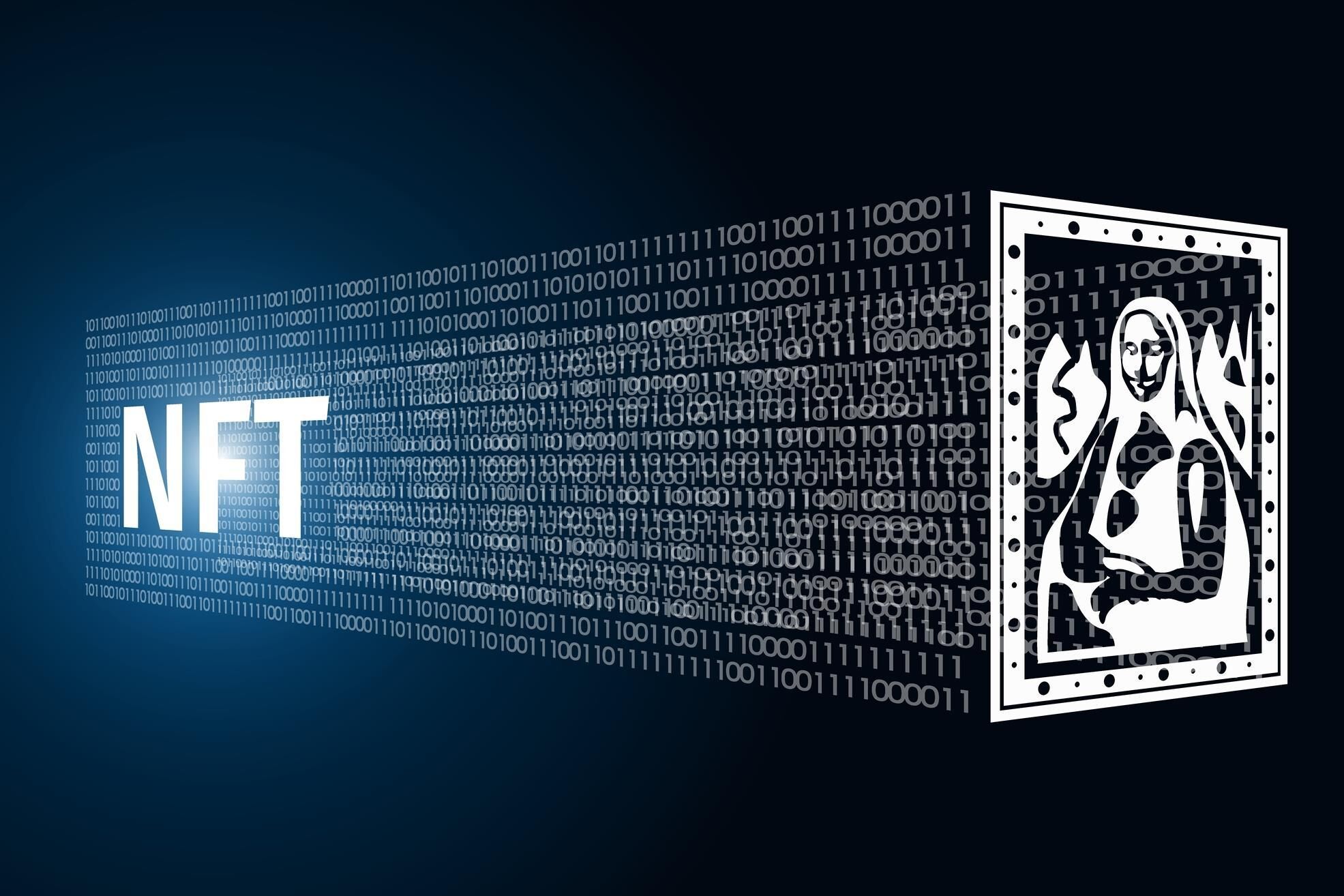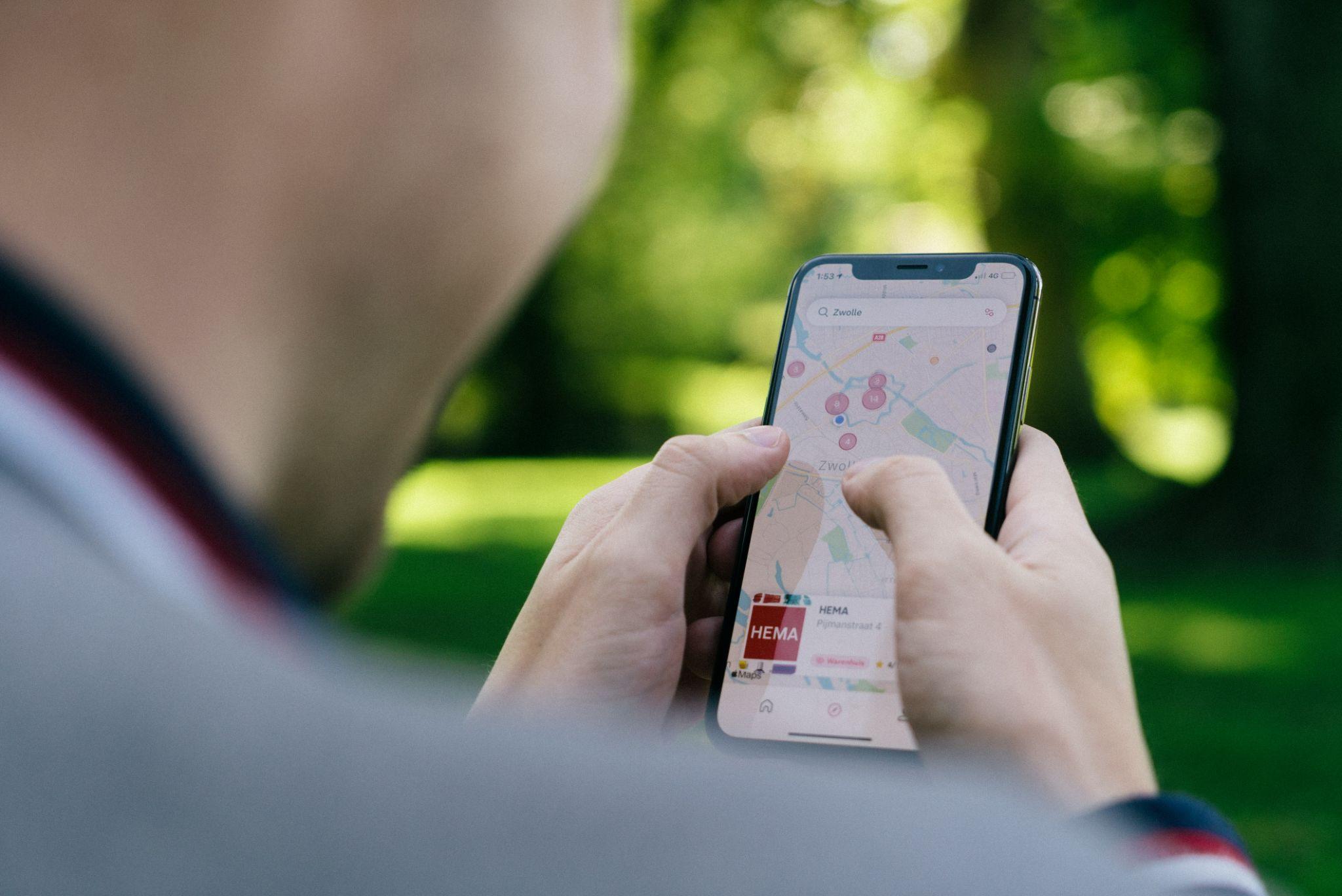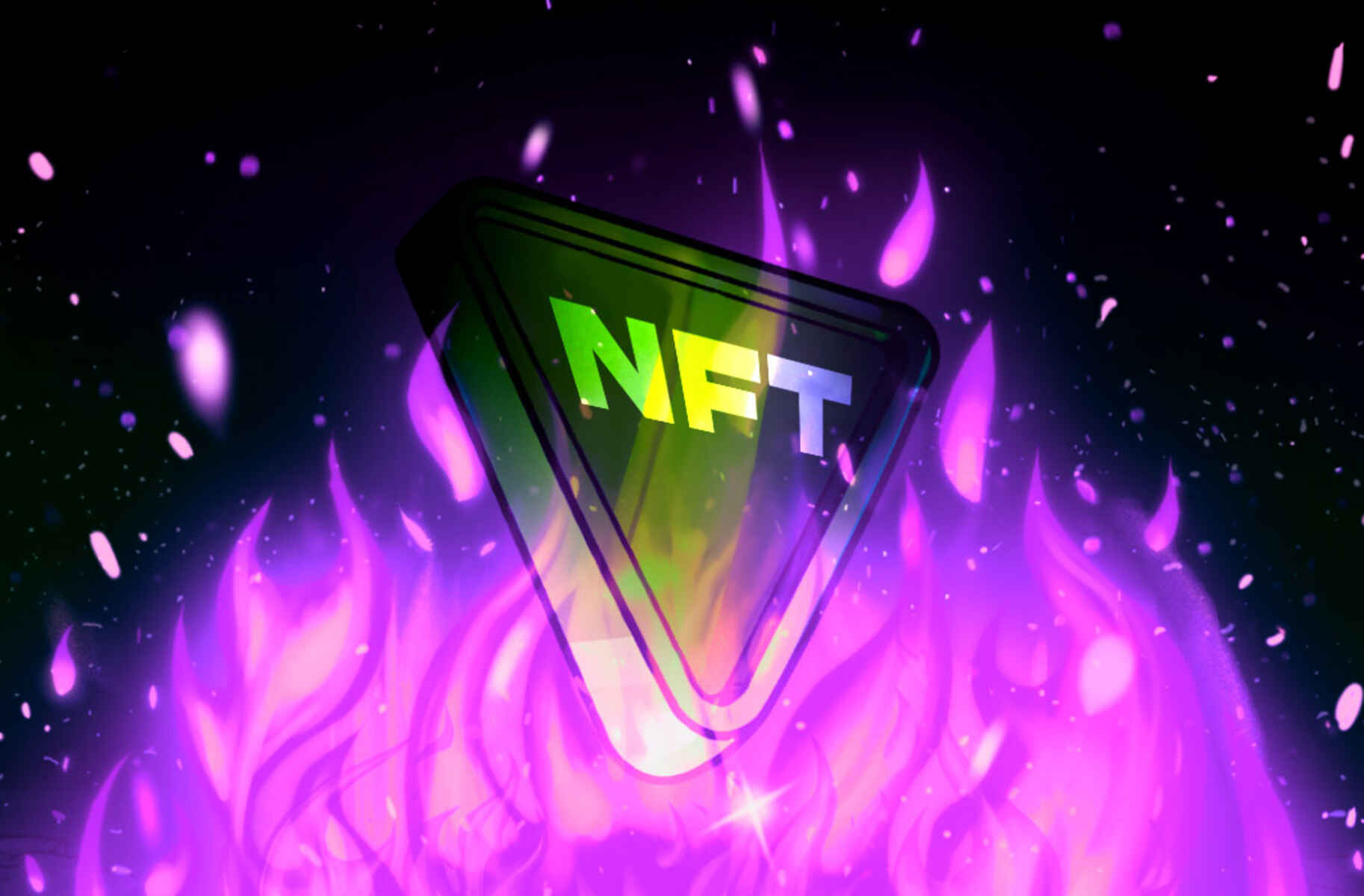Introduction
With the rise of non-fungible tokens (NFTs), the digital art world has seen a surge in popularity and value. However, this new form of art ownership also brings with it a unique set of challenges, one of which is the risk of theft. Just like any other valuable possession, NFTs can be stolen, leaving the owners devastated and desperate for a solution.
If you find yourself in the unfortunate situation of having your NFT stolen, don’t despair. While the decentralized nature of blockchain technology does present some complexities when it comes to recovery, there are steps you can take to increase your chances of getting your stolen NFT back.
In this guide, we will walk you through the process of recovering a stolen NFT, detailing the actions you can take and the resources available to you. It’s important to note that recovering a stolen NFT can be a complex and time-consuming endeavor, and success is not guaranteed. However, by following the steps outlined in this guide, you’ll have a better chance of reclaiming your stolen digital art.
Before we dive into the recovery process, it’s crucial to note that prevention is always the best strategy. Taking proactive measures to secure your NFTs, such as using strong passwords, enabling two-factor authentication, and storing your digital assets in secure wallets, can help mitigate the risk of theft in the first place.
However, if you do fall victim to NFT theft, don’t lose hope. The following steps will guide you in your efforts to recover your stolen NFT and bring the perpetrator to justice. Let’s get started.
Step 1: Report the theft to the platform or marketplace
If you discover that your NFT has been stolen, the first course of action is to report the theft to the platform or marketplace where you obtained or traded the token. Most reputable NFT platforms have processes in place to handle such cases and may be able to provide assistance in recovering the stolen asset.
Start by contacting the support team of the platform or marketplace and provide them with all relevant details regarding the theft. This includes information about the stolen NFT, such as its title, description, creator, and any identifying metadata or token ID. It’s essential to be as detailed and accurate as possible to help the platform identify and track the stolen NFT.
In addition to providing information about the NFT, you should also include any evidence or documentation you have regarding the theft. This could include screenshots of the original listing, transaction history, or any suspicious activity related to the theft. The more evidence you can provide, the better equipped the platform will be to investigate the incident.
Once you have reported the theft, be proactive in following up with the platform or marketplace. Inquire about their progress in investigating the incident and ask for regular updates. It’s important to stay engaged and maintain open lines of communication to ensure that your case receives the attention it deserves.
While reporting the theft to the platform is an essential step, it’s important to understand that their ability to recover the stolen NFT may be limited. The decentralized nature of blockchain technology can make it challenging to reverse transactions or trace the movement of stolen assets. However, platforms may be able to take actions such as freezing the stolen NFT or disabling the account of the thief, which can help prevent further dissemination and increase the chances of recovery.
Remember, time is of the essence when it comes to reporting the theft. The sooner you report the incident, the higher the likelihood of swift action and potential recovery. Be vigilant and act promptly to give yourself the best chance of reclaiming your stolen NFT.
Step 2: Gather evidence
When dealing with a stolen NFT, gathering evidence is crucial for building a solid case and increasing the chances of recovery. Collecting as much information and documentation as possible will not only help in the investigation but also provide a strong foundation if legal action becomes necessary.
Start by documenting all the details surrounding the theft. This includes the date and time you discovered the NFT was stolen, any suspicious activity leading up to the theft, and any communication you had with the platform or marketplace regarding the incident. This information will help establish a timeline and provide valuable context for the investigation.
Next, gather any relevant transaction records or blockchain data related to the stolen NFT. This could include the transaction ID, wallet addresses involved in the theft, and any associated metadata. If you are not familiar with navigating blockchain explorers or retrieving transaction data, consider seeking the help of a blockchain expert who can assist you in accessing and analyzing the necessary information.
In addition to transaction records, take screenshots or save any digital evidence that supports your case. This could include original images or descriptions of the NFT, proof of ownership, or any suspicious communications or interactions with the thief. These pieces of evidence can be invaluable when presenting your case to the platform, marketplace, or law enforcement.
It’s also important to gather any witness statements or testimonies. If there were any individuals who witnessed the theft or have relevant information, reach out to them and ask if they would be willing to provide a statement or support your case. Their statements can serve as corroboration and add weight to your claims.
Organize all the gathered evidence in a clear and concise manner. Create a comprehensive file or folder that includes all the relevant documents, screenshots, and statements. This will not only help you stay organized but also make it easier to present the evidence to the appropriate parties when necessary.
Remember, the strength of your case and the likelihood of recovery may depend on the quality and quantity of evidence you provide. Take the time to gather all available information, and if needed, consult with legal professionals or blockchain experts who can guide you in collecting and organizing the evidence effectively.
Step 3: Inform the cryptocurrency community
Informing the cryptocurrency community about the theft of your NFT can be a powerful step in increasing the likelihood of recovery. The decentralized nature of the blockchain community means that there are various platforms, forums, and social media groups where you can raise awareness and seek assistance from others who may have valuable insights or connections.
Start by posting about the stolen NFT on reputable cryptocurrency and blockchain forums. Describe the details of the theft, including the artist, title, and any distinguishing features of the NFT. Provide information about the platform or marketplace where the theft occurred, as well as any relevant transaction or wallet addresses associated with the stolen asset.
Additionally, reach out to influential figures within the cryptocurrency community who may be able to help spread the word. This could include artists, collectors, influencers, or blockchain enthusiasts who have a significant following or influence in the space. Ask them to share your story or provide any information that could aid in the recovery of your stolen NFT.
Social media platforms, especially Twitter and Discord, are also valuable channels for spreading awareness about the theft. Create posts or threads explaining what happened and include relevant hashtags, such as #stolenNFT or #NFTtheft, to increase the visibility of your message. Tag relevant individuals, communities, or organizations that could potentially assist in the recovery process.
When interacting with the community, be mindful of providing accurate and verified information. This will help maintain credibility and ensure that those who are willing to assist you have the necessary details to do so effectively. Be open to answering questions or providing additional information to those who express interest in helping.
Remember, the cryptocurrency community is often supportive and eager to help in cases of theft or fraud. By tapping into this network, you can leverage the collective knowledge, resources, and connections of the community to increase your chances of recovering your stolen NFT.
Keep in mind that while reaching out to the community can be beneficial, exercise caution and be aware of potential scammers or individuals seeking to take advantage of the situation. Stay vigilant and verify the credibility of anyone offering assistance before sharing sensitive information or engaging in further communication.
Step 4: Contact law enforcement
When dealing with the theft of a valuable NFT, involving law enforcement is an important step to take. While the decentralized nature of blockchain technology may pose challenges for traditional law enforcement agencies, reporting the theft can help create a paper trail and potentially lead to investigations and legal actions against the perpetrators.
Start by contacting your local law enforcement agency and providing them with all the relevant details regarding the stolen NFT. This includes information about the platform or marketplace where the theft occurred, any transaction or wallet addresses associated with the stolen asset, and any evidence or documentation you have gathered regarding the theft.
It’s important to be patient and understand that law enforcement agencies may not be familiar with the intricacies of blockchain technology and NFTs. Take the time to educate them about the nature of the theft and provide any relevant resources or information to help them understand the situation better.
In addition to local law enforcement, you can also reach out to specialized cybercrime units or agencies that have experience in handling cases involving cryptocurrency and blockchain technology. These units may have the expertise and tools necessary to track stolen assets and identify the individuals responsible.
When interacting with law enforcement, be prepared to provide detailed information and cooperate fully with their investigation. This may include providing access to your digital wallet, transaction records, and any other information that can aid in their efforts to recover the stolen NFT.
It’s important to note that law enforcement involvement may not always result in a successful recovery of your stolen NFT. The decentralized and anonymous nature of blockchain transactions can make it difficult to trace and retrieve stolen assets. However, by reporting the theft, you are taking an important step towards holding the perpetrators accountable and discouraging future thefts.
Keep all documentation related to your interactions with law enforcement, including incident reports, case numbers, and the names of the officers involved. This information can be useful if you decide to pursue legal action or if further investigations are required.
Remember, involving law enforcement may take time and patience. Be persistent in following up with them and providing any additional information or evidence that may assist in their investigation. While the outcome may be uncertain, reporting the theft to law enforcement is an important step in taking action against the theft and promoting a safer digital art ecosystem.
Step 5: Hire a blockchain forensics expert
When dealing with the theft of an NFT, hiring a blockchain forensics expert can be a valuable asset in the recovery process. These professionals specialize in analyzing blockchain transactions and tracing the movement of digital assets, providing invaluable insights and expertise in identifying the culprits involved.
Start by researching and identifying reputable blockchain forensics experts or firms that have experience in handling NFT theft cases. Look for professionals who have a track record of success in tracing stolen assets and working with law enforcement agencies.
Once you’ve gathered a list of potential experts, reach out to them and provide them with all relevant information about your stolen NFT. This includes transaction details, wallet addresses, any suspicious activity surrounding the theft, and the evidence you have gathered thus far.
During your consultation with the blockchain forensics expert, ask about their approach to investigating NFT thefts and what techniques and tools they will be using. Inquire about their success rate in previous cases and their ability to work with platforms, marketplaces, and law enforcement to aid in recovery efforts.
Keep in mind that hiring a blockchain forensics expert can be a costly endeavor, and there are no guarantees of successful recovery. However, their expertise and knowledge of the blockchain ecosystem can significantly increase your chances of identifying the thieves and potentially recovering your stolen NFT.
In addition to providing insights and analysis, blockchain forensics experts can also assist in preparing any necessary documentation or reports required for legal proceedings. Their expertise can be instrumental in presenting your case and providing a comprehensive understanding of the theft to law enforcement or legal representation.
Collaborating with a blockchain forensics expert also ensures that you are taking a proactive approach to the recovery process. Their knowledge of the latest tools and techniques in blockchain analysis can uncover potential leads and hidden trails that may have been missed otherwise.
Remember to establish open lines of communication with the blockchain forensics expert and provide them with any updates or new information that may arise during the investigation. Collaboration and cooperation between all parties involved are essential in maximizing the chances of successfully recovering your stolen NFT.
While hiring a blockchain forensics expert may not guarantee immediate recovery of your stolen NFT, their expertise and assistance can significantly enhance your chances of reclaiming your digital asset and holding the perpetrators accountable.
Step 6: Explore legal options and seek professional advice
When all other avenues have been exhausted and the recovery of your stolen NFT seems challenging, it may be time to explore legal options and seek professional advice. Engaging with legal experts who specialize in blockchain and digital asset law can provide you with valuable guidance and determine the best course of action for your specific situation.
Start by consulting with an attorney who has experience in dealing with cryptocurrency and NFT-related cases. They will be able to evaluate the circumstances surrounding your theft and advise you on the potential legal remedies available to you.
During your consultation, be prepared to provide all relevant information and documentation regarding the theft. This includes any communication with the platform or marketplace, evidence of ownership, transaction records, and any interactions with law enforcement or blockchain forensics experts.
Your attorney will help assess the strength of your case and advise you on the best legal actions to take. This could include filing a lawsuit against the thief or seeking injunctions to prevent further dissemination of the stolen NFT. They will also be able to guide you through the legal process, ensuring that your rights are protected and that you have the best chance of recovering your stolen asset.
It’s important to note that the legal landscape surrounding NFTs is still evolving, and laws may vary depending on jurisdiction. This is why seeking the expertise of a knowledgeable attorney is crucial in navigating the complexities of the legal system.
In addition to legal advice, consider consulting with insurance experts who specialize in digital asset insurance. They can assess your situation and determine if your stolen NFT may be covered by any insurance policies you have in place. Insurance coverage can provide financial protection and assistance in the recovery process.
Throughout the legal process, maintain open and transparent communication with your attorney and other professionals involved. Be proactive in providing them with any new information or updates that may arise, as this can greatly impact the direction and success of your case.
Remember, each case is unique, and the legal options available to you will depend on various factors. Consulting with professionals who specialize in the field of blockchain law and digital asset management will help you determine the most appropriate and effective course of action.
Seeking legal advice and exploring your legal options is a critical step towards recovering your stolen NFT. While it may involve time and resources, it can provide you with the guidance and representation necessary to hold the perpetrators accountable and reclaim your valuable digital asset.
Conclusion
Dealing with the theft of a valuable non-fungible token (NFT) can be a distressing and challenging experience. However, by following the steps outlined in this guide, you increase your chances of recovering your stolen NFT and holding the criminals accountable.
Remember, prevention is always the best strategy when it comes to protecting your NFTs. Take proactive measures to secure your digital assets, such as using strong passwords, enabling two-factor authentication, and storing your NFTs in secure wallets.
If your NFT is stolen despite your prevention efforts, take immediate action. Report the theft to the platform or marketplace, gather as much evidence as possible, inform the cryptocurrency community, and contact law enforcement. Hiring a blockchain forensics expert can provide valuable insights, and seeking legal advice can help you explore potential legal options.
Recovering a stolen NFT may not always be possible due to the decentralized and anonymous nature of blockchain transactions. However, by taking these steps, you increase the likelihood of recovery and can contribute to raising awareness about NFT thefts within the community.
Remember to exercise caution throughout the recovery process. Be aware of potential scammers and verify the credibility of individuals or organizations offering assistance. Document every step, maintain open lines of communication with the relevant parties, and stay informed about the latest developments in blockchain technology and NFT security.
While the recovery of a stolen NFT can be challenging, it is not impossible. By staying vigilant, being proactive, and seeking help from the right experts, you can increase your chances of reclaiming your stolen digital art and protecting the integrity of the NFT ecosystem as a whole.

























